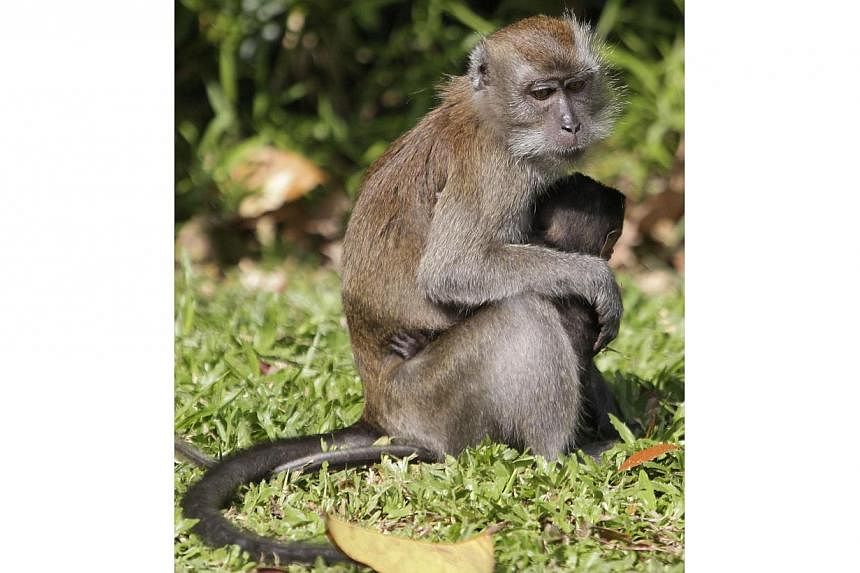IF YOU have seen fewer monkeys in your neighbourhood recently, you are not alone. The amount of monkey-related feedback more than halved last year, after an estimated one-third of the animals were killed.
Last year, the Agri-Food and Veterinary Authority (AVA) received 750 cases of feedback about monkeys, including nuisance and safety concerns - a sharp drop from 1,860 in 2013.
It killed 570 monkeys in 2013, which was about a third of the estimated population of 1,800 at the time.
Residents who were plagued by the animals' presence have seen fewer of them around.
Retired lecturer Benjamin Ng, 66, said the monkeys used to chase people carrying groceries at his Bukit Timah condominium: "They also got into homes and made a mess."
He said the situation improved last year after monkey-proof bins were installed in the neighbourhood, and people stopped feeding the monkeys.
Many residents disagreed with the findings of a survey commissioned by the Animal Concerns Research and Education Society (Acres).
The poll of 600 Singaporeans found that less than 15 per cent supported culling monkeys, stray dogs and wild pigs. About half of them - 42 per cent to 55 per cent - were on the fence about culling the animals.
The residents said support for culling might have been higher if the survey had focused on areas with many of the animals.
Mr Fong Kwok Shiung, 53, chairman of the Moulmein-Watten Neighbourhood Committee in Bukit Timah, said very few of the residents he had spoken to were opposed to culling. Those residents had endured monkeys chasing them and raiding their homes. "Most of us just wanted the problem solved... The population must be controlled, or things will get out of hand," he said.
The AVA said it humanely euthanises animals as a last resort, and conducts targeted removal of aggressive or nuisance-causing monkeys for public safety in response to feedback.
Relocating monkeys is not possible in land-scarce Singapore, and merely transfers problems from one estate to another, it said.
Acres, which is opposed to culling, said it is preparing a scientific paper on why culling is ineffective here. It also submitted a proposal to AVA last year on a more long-term and humane way of managing such conflicts, which involves herding the animals away from residential areas.

